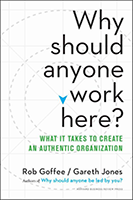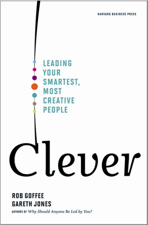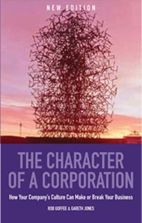What we say...
-
3 Critical Skills to Teach in Leadership Training
Sunday 1st September 2019
-
Leadership, Change and Uncertainty
Friday 6th April 2018
-
What does the Oxfam scandal tell us about organisations
Friday 23rd February 2018
-
I look forward to speaking at The HR Congress
Tuesday 31st October 2017
-
Why should anyone work here - Animation
Friday 11th December 2015
What does the Oxfam scandal tell us about organisations
The unfolding scandal at Oxfam has already
attracted wide media and governmental attention and will no doubt have huge
ramifications not just for Oxfam but for all charitable organisations and
indeed will fuel criticisms of the whole overseas aid agenda.
The first concerns governance. If you examine the Trustees of Oxfam you will find a group of people with wide experience, ranging from The Chair, formerly the COO of the BBC, and including individuals from the financial sector, from PwC, from McKinsey and several people with experience of the Healthcare sector. All in all, an impressive bunch. Did they know what was really going on? There are two possible answers here – either they did and they conspired in a cover up, or they didn’t which casts doubts over their competence as Trustees. But is this a fair opposition? The analogues for Trustees in the private sector are non-executive directors, can they really know what’s going on inside a large complex and international organisation? The Barclays Board, for example, had a glittering array of non-executive directors representing some of the best of British business. Nevertheless the bank was engaged in the Libor rate scandal. The conclusion must be that it’s very difficult for non-executives in public companies or trustees in large complex charities to really know what is going on. The information coming to them is often highly sanitized, they are provided with a tidied up version of organisational reality. The dilemma they face is this, either they develop close relationships with members of the organisation as a way of short circuiting the formality of board meetings, in which case, they lose some of their value as outsiders, or, they value their status as outsiders and become over reliant on the validity of the information provided to them. In truth, we have a full blown crisis of organisational governance which the Oxfam scandal merely serves to highlight.
The second concerns honesty. What is becoming ever clearer is that in its early conversations with the Charities Commission and other significant stakeholders, the leadership and management of Oxfam was less than totally open. It’s always the cover up that gets them. Investigative journalists and whistle blowers armed with WikiLeaks and freedom of information acts, will get to the truth. Perhaps it’s better to tell the whole truth first before some else does. It is now becoming clear that Oxfam employees had raised issues of abuse on more than one occasion but either they were not listened, bullied into silence, or the issues they raised were brushed under the carpet. Practising what we have termed radical honesty in organisational life is hard (ref: Why should anyone work here? Harvard Business Press). It is proactive rather than reactive; it works fast; it may even shock people with its honesty; it stimulates dissent and perhaps above all, it engages with a wide range of stakeholders – employees, shareholders, donors, regulators, and with the wider society. Many organisations in both the public and private sector are still trapped in a world where “spin” rules and the instinct is to get away with telling as little as you can.
Thirdly, it is now clear that moral purpose alone is an insufficient condition for organisational integrity. No-one can doubt that Oxfam has an honourable, indeed laudable purpose. It has brought succour to some of the most beleaguered people on earth. It is probably also true that the vast bulk of its employees and volunteers are deeply attached and committed to its moral purpose. One of the Trustees of Oxfam, Katy Steward, describes herself as “especially interested in principle led leadership and values”. But organisations are also held together by rules, processes and procedures. Of course, it’s much better if these are agreed rather than imposed and that they rest upon shared values deeply embedded in the organisation. If they are not, they are in danger of creating a miasma of bureaucratic confusion. Oxfam operates in some of the most lawless parts of the world, in such contexts, its own rule systems must be robust and enforced. Mission statements alone will not suffice. Respect, integrity, communication and excellence – the mission statement of Enron!
One final observation, Oxfam’s reputational
capital has without doubt been badly damaged. The BBC’s has been damaged by the
equal pay issue. Surely the difficult issues facing Oxfam – bullying and abuse
– and the pay issues facing the BBC, fall squarely in the orbit of the Human
Resources department? And yet we have
heard little from HR in either organisation. Maybe it’s time that organisations
in both the public, private and charitable sectors recognised that issues
around people and processes – as well as honesty, governance and purpose – are not
matters just of administration, they are central to managerial effectiveness
and moral integrity.



